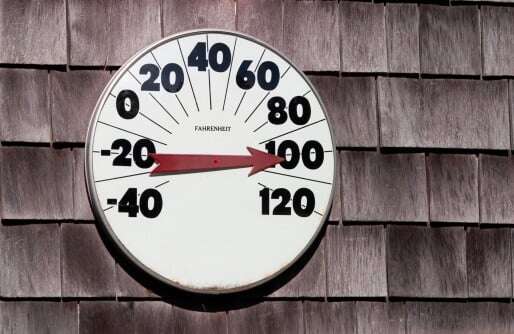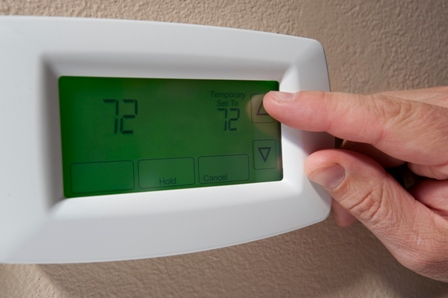 The summer temperatures in Chico, California are here and it's HOT outside. Many people have received their first or second summer electric bills – and they're literally breaking out in a sweat over the amount due.
The summer temperatures in Chico, California are here and it's HOT outside. Many people have received their first or second summer electric bills – and they're literally breaking out in a sweat over the amount due.
When it's about 100 degrees in Northern California, it's hot enough for anyone and anything. Learn the best way for you to set your thermostat this summer – even if it's not exactly what you want to hear or you prefer a relatively chilly indoor air temperature.
The case for a warmer indoor air temperature
Making “the case” for a warmer indoor air temperature during the summer rests on three truisms:
- The longer your air conditioner runs, the higher your electric bill will be.
- The lower you set your thermostat, the longer your air conditioner will run and the higher your electric will be.
- Therefore, the more you can reduce the difference between the outdoor temperature and your indoor temperature, the less your air conditioner will run and the lower your summer air conditioning bills will be.
The California Energy Commission recommends that homeowners set their thermostat to 78 degrees when they're home and 85 degrees when they're away from home during the summer. Note that this is a better strategy than turning off your air conditioner on 100-degree days – so that you don't return home to indoor air that feels like a sauna, and so that your air conditioner won't have to run as long to cool your home upon your return.
The center's advice is based on the U.S. Department of Energy's often repeated mantra about thermostat controls and saving energy: when you can adjust your thermostat by between 10 and 15 degrees for eight hours at a stretch – higher during the summer and lower during the winter – you can save between 5 and 15 percent on your utility bill. This one adjustment can add up to considerable savings, though it might mean sticking with a minimalist wardrobe during the summer (and reaching for a sweater during the winter).
Consider ramping up the dial
Other energy savings advocates not only embrace the three-point case; they say that homeowners should push the envelope – and the thermostat dial – even further. They recommend that when it's 90 degrees outside, you should try setting your air conditioning thermostat at 80 degrees or higher. And when it's 95 to 100 degrees outside (and higher), you should set your thermostat at 85 degrees or higher.
Anticipating objections, they say that you don't have to make this temperature jump in one day. If you gradually increase your indoor temperature – say, by 1 or 2 degrees per day – you will gradually increase your physical tolerance for heat. And with a warmer indoor temperature, you're less likely to feel jolted between the temperature difference of your home's temperature and the outdoors.
Keep your cool
Admittedly, some people simply do not tolerate warm weather well. And some people suffer from health issues that make a cool indoor air temperature an absolute necessity.
Be sure to make allowances for such conditions and take proactive measures to help you stay cool indoors with or without air conditioning -- and even before the temperature soars to three digits outdoors:
- Close your window treatments during the day when the sun is out.
- Turn your ceiling fans in a counterclockwise direction. Doing so will create a literal wind-chill effect that should allow you to set your thermostat about 4 degrees higher than usual -- and you won't feel one bit warmer.
- For the same reason, place table and floor fans in strategic places, such as to cool down the kitchen while you're cooking.
- Make good use of kitchen and bathroom exhaust fans to force heat and humidity to dissipate in a hurry.
- Turn on your whole-house fan in the evening, when temperatures drop outdoors, to bring cooler air into your home and maybe even give your air conditioner a break.
- Drink plenty of water to stay hydrated.
When it's 100 degrees outdoors, you're likely to feel the heat indoors. Ensuring that you're home is properly sealed and insulated against air leaks will mitigate your discomfort – and help keep your utility bills in check. Addressing such challenges is our specialty, so call us for a consultation and we'll help you keep your cool this summer.








